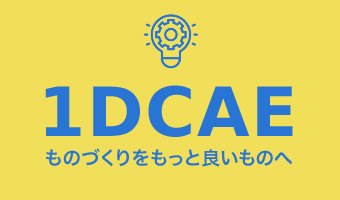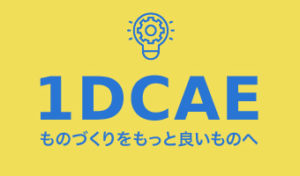1DCAE MBD Symposium 2021

 Modelon will sponsor and present at the 1DCAE MBD Symposium 2021 hosted by the Japan Society of Mechanical Engineers (JSME). This 3-day symposium, from December 8th to 10th, will be held online under the COVID-19 preventive measurements.
Modelon will sponsor and present at the 1DCAE MBD Symposium 2021 hosted by the Japan Society of Mechanical Engineers (JSME). This 3-day symposium, from December 8th to 10th, will be held online under the COVID-19 preventive measurements.
The 1DCAE MBD Symposium has been held as an annual symposium since 2019, led by the Design Engineering and Systems Division of the Japan Society of Mechanical Engineers, with the aim of contributing to the full-scale application of 1DCAE and MBD in the future through the dispatch of information, lectures, and information exchange. This year, in addition to research presentations, Modelica Users’ Conference will also be co-hosted in the session.
Registration site is now open
To attend the 1DCAE MBD Symposium 2021, all participants are requested to register online by no later than November 30, 2021.
For JSME regular members and non-members, click and register here. (paid through Event Pay system)
For student members/graduate student members (regular members)/general students, click and register here. (free for students)
*Note: The Symposium’s official language is Japanese.
Modelon will present the following session at 1DCAE MBD Symposium:
Day 1 | December 8, 2021 (Wed) | 15:40 – 17:00
Modelon will talk about the company and our solutions – Modelon Impact – during the Sponsors Session on Day 1.
Day 2 | December 9, 2021 (Thu) | 10:10 – 10:35
Presented by: Rui GAO, Managing Director, East Asia, Modelon K.K
Co-authors: Stephane Velut (Modelon AB), Fredrik Magnusson (Modelon AB)
This paper describes a web-based modelling and simulation platform that can help accelerating the deployment of hydrogen technologies. A successful and rapid deployment will depend on the ability of stakeholders to assess the technical and economic feasibility of such a challenging project. The approach taken in the paper is versatile and can be applied to solve design and optimization problems on various configurations that include components such as electrolysers, renewable energy sources, hydrogen storage tanks, stationary fuel cells or fuel cell vehicles, battery energy storage and consumers. The power of the approach lies in 1) The open standards that are used for the modelling allowing component customization and mixing of the physical domains; 2) Its ability to formulate various optimization problems using the same models and thereby analyse a system from various perspectives, e.g. energy producer centric or consumer centric; 3) Its ability to solve for design problems while optimally operating the assets and thereby avoiding the need for designing complex empirical controllers. The approach will be applied on a hybrid energy system to illustrate how hydrogen and electricity production can be decoupled from its usage by fully exploiting battery and hydrogen energy storage systems.
Key Words: Optimization, Modelica, Hydrogen Technologies, Microgrid
Join our presentation to learn more.
Contact us for more information